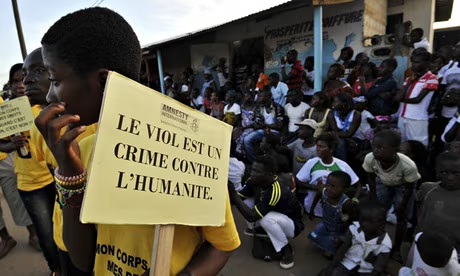‘’ … it’s because we feel today that we need a consistent system to promote and protect [human] rights and freedoms …We must show imagination and effectiveness … ‘’ [1]
In marking the African Human Rights Day, the Institute for Human Rights and Development in Africa (IHRDA) calls upon African States and African leaders to renew their commitment under the African Charter on Human and Peoples’ Rights through genuine and full compliance with the recommendations of the African Commission on Human and Peoples’ Rights and fulfill the legitimate expectations of victims of human rights violations and the African people.
On 21 October 1986, the African Charter on Human and peoples’ Rights which forms the basis of the African human rights system came in to force embracing the aspirations of the African people for an effective and consistent system of their own for the protection of their rights and freedoms. Each year on 21 October, Africa commemorates African Human Rights Day to reflect and recommit to the solemn undertaking by African leaders and the African peoples to promote and protect human rights on the Continent.
Its to be recalled that in October 2011, the African human rights system celebrated the 25th anniversary of the coming it to force of the African Charter and in October 2012 the African Commission is celebrating its 25th anniversary.
IHRDA congratulates the Commission on its 25th anniversary for years of remarkable contributions in the enterprise of human rights promotion and protection in Africa despite the multifaceted challenges posed throughout these years. The Commission, being the first regional human rights mechanism and an institutional lone ranger for years, has indeed played a crucial role in developing human rights standards in Africa marked by a positive arc that bends toward better protection of rights and fundamental freedoms.
While celebrating the achievements of the Commission in the past 25 years, IHRDA laments the fact that the work of the Commission has been shattered by legitimacy deficit due to manifested lack of State compliance with its recommendations. Non compliance of State Parties to the recommendations constituted one of the major factors for the erosion of the Commission’s credibility and the African Charter itself. IHRDA notes that empirical studies show an overall lack of State compliance with the recommendations of the African Commission[2] and the latter also expressed deep concern several times on the general trend of State Parties ignoring its recommendations.[3] For example, records show a daunting figure that so far only about 10 out of over 70 decisions of the Commission have been implemented in part or in whole which regrettably left the profound jurisprudence ineffective and the very legitimacy of the system into question.
In commemoration of this day, IHRDA urges all member States to honor their solemn commitment under Article 1 of the African Charter; ‘to adopt legislative and other measures to give effect to the rights under the Charter’. IHRDA calls upon States and African leaders for a solid political will to take all the necessary measures to ensure the implementation of the Commission’s decisions thereby upholding the rights under the Charter which they undertook to respect, promote and protect.
IHRDA also takes this opportunity to urge the African Union for greater involvement in monitoring State compliance with the recommendations of the Commission such as a direct relation with the Executive Council as that of the African Court whereby under the Court’s Protocol the Council shall monitor the execution of the judgments of the Court. The African Union is called upon to show deep interest and priority for the execution of the recommendations of the African Commission to ensure proper and effective follow up on the work of the Commission for the realisation of the Charter rights.
IHRDA calls upon the African Commission to dynamically activate an effective follow up mechanism in accordance with its Rules of Procedure to ensure the realisation of its recommendations in the lives of the African peoples. Showing imagination and effectiveness, and drawing important lessons from regional and international human rights bodies, we urge the Commission to diligently work towards improving its poor implementation record thereby delivering the promise of its protective mandate.
Furthermore, IHRDA extends the call to National Human Rights Institutions and civil society actors to put an independent follow up mechanisms in place in order to assist the African Commission in shifting the paradigm beyond jurisprudential value; ‘from judgment to justice’ for victims of human rights violations.
[1] Statement of the founding father of the African Charter, President Leopold Sedar Senghor at the opening of the Dakar drafting meeting.
[2] F Viljoen & L Louw , ‘State Compliance with the Recommendations of the African Commission on Human and Peoples’ Rights,1993–2004’ (2007) 101 American Journal of International Law 1.
[3] ‘Non Compliance of state parties to adopted recommendations of the African Commission: A legal approach’ DOC/OS/50b(XXIV)(1998).See also ‘Report of the retreat of members of the African Commission on Human and Peoples’ Rights’ http://www.nhri.net/pdf/ACHPR-Retreat Report-find.pdf.





